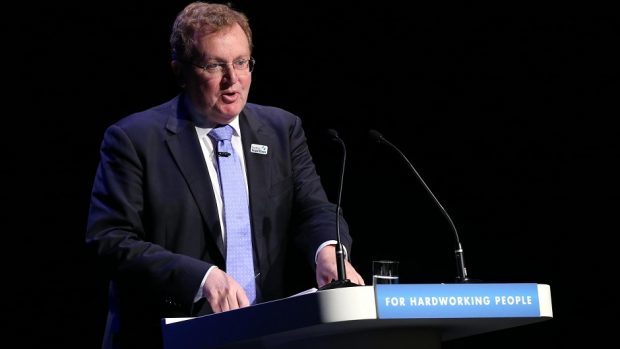Scottish Secretary David Mundell has revealed the £1billion funding for carbon capture and storage development was axed because it did not represent “the same value for money” as other priorities.
The Conservative minister accepted the decision to pull the plug on the competition for the money was “disappointing”, but insisted a “difficult choice” had to be made.
Plans to build a ground-breaking CCS plant at Peterhead came to a halt following the move, announced on the Stock Exchange on the same day as the chancellor’s spending review.
Mr Mundell told the Press and Journal: “There isn’t going to be UK Government money in this Parliament. That’s clear.
“If there are any other private sector third-party funders we would be supportive and work with them.
“But unfortunately it was a difficult choice – it was £1billion.”
He said the government had chosen to prioritise spending elsewhere, such as on defence, including maritime patrol aircraft.
Mr Mundell went on: “In simple terms, that’s the choice – very worthy and obviously with potential, the CCS project didn’t represent the same value for money.
“There’s potential but not a guaranteed outcome.
“It’s disappointing. I accept that. It was a difficult choice that had to be made.”
His comments come after Energy Secretary Amber Rudd insisted CCS would play an “important” role in the future.
In the Commons earlier this week, SNP energy spokesman Callum McCaig branded the step a “betrayal” and accused the Government of being “short-sighted” and “determined to throw away the lead”.
He also warned other countries would steal a march on developing the technology.
But Ms Rudd said she did not agree with the Aberdeen South MP’s assessment of the situation, emphasising the need to ensure value for money for consumers.
First Minister Nicola Sturgeon has described the move as “bizarre and really damaging”.
The SNP leader said there was a “gulf” between the UK Government’s rhetoric on climate change and its recent policy.
Government sources told the Press and Journal in the wake of the decision the capital had always been “subject to affordability”, stressing the decision was “not taken lightly”.
